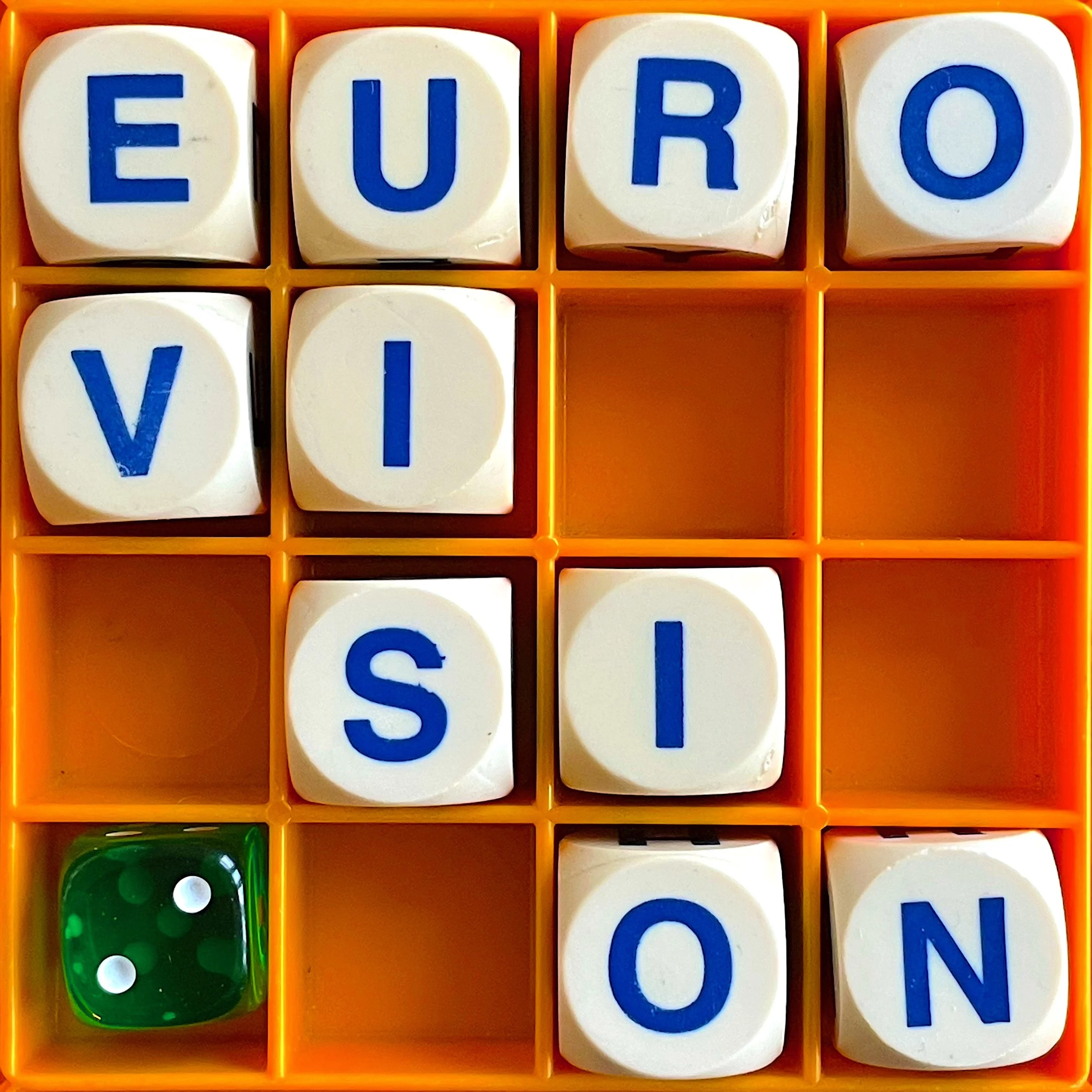Let’s hear it for some of the constellations that we used to have but are now ex-constellations.
Read moreAllusionist 199. 199 ideas that I hadn't made into podcasts yet - transcript
This is the 199th episode of the show, and since before this show began, so for nearly a decade, I have been jotting down ideas in two documents - one for short ideas, one for long ideas. There are always more ideas than I have time and ability to make podcasts about, so now the documents are altogether 66 pages long and growing every day. So in this episode, you’re going to hear 199 ideas that I wanted to put into the podcast and haven’t yet.
Read moreAllusionist 180 Project ENABLE transcript
STERLING MARTIN: Growing up, I've always had an interest in science and that's something my family helped nurture. Also just growing up, there weren't many Navajo words in science. Then I went to undergrad at the University of Iowa and my parents were like, "Oh, what are you doing?" And I worked in a research lab, so I could get some bench experience, and just trying to explain to them what I was doing scientifically, I could tell they weren't really catching on to what it meant.
Read moreAllusionist 175 Eurovision part 2 transcript
DEAN VULETIC: There are lots of economic, cultural and political factors that can decide which language will be most represented in a country's entries, even when it has various national languages.
HZ: Azerbaijan: the only country never to have entered in its national language.
DEAN VULETIC: Correct.
HZ: Could be this year.
DEAN VULETIC: Errrr, I doubt it, because the Azerbaijani government has been very ambitious in Azerbaijan’s Eurovision entries, in using them as a tool of soft power and cultural diplomacy. It has spent a lot of money in getting well-known songwriters and composers from across Europe to produce pop hits that could really win Eurovision. And of course, this means hits in English. And once Azerbaijan did win Eurovision in 2011 and went on to host the most expensive Eurovision ever in Baku. So Eurovision is also popular among dictators as a tool of cultural diplomacy - or as a tool for whitewashing their human rights and democratic records.
Allusionist 174 Eurovision part 1 transcript
The Eurovision Song Contest has given us the international renown of Celine Dion, Måneskin, Dana International, Conchita Wurst and Riverdance; tear-off skirts, nul points, shiny shiny costumes, a band of babushke dancing around an onstage bread oven; not to mention fraught politics, within and between nations. And most importantly for our purposes: linguistic intrigue! So much linguistic intrigue.
Read moreAllusionist 146 Survival: Today, Tomorrow part 1 transcript
HZ: The Icelandic word for ‘mansplaining’ translates as ‘ramsplaining’. Like the original, it’s a portmanteau, but there’s also a bonus pun in there.
ÁGÚSTA ÞORBERGSDÓTTIR: That's hrútar, ram, and explaining.
JÓHANNES BJARNI SIGTRYGGSSON: The word for explanation is utskyring. So you add in front of it H and R.
ÁGÚSTA ÞORBERGSDÓTTIR: H R, that’s Mr Explaining.
JÓHANNES BJARNI SIGTRYGGSSON: It becomes hrutskyring.
ÁGÚSTA ÞORBERGSDÓTTIR: Hrutskyring, Mr Explaining, herra utskyring.
JÓHANNES BJARNI SIGTRYGGSSON: Hrútar also means a ram, a male sheep, so in many ways it's a very funny word.
Allusionist 135 SOS transcript
PAUL TYREMAN: Three dots, three dashes, three dots. It's fairly easy to remember, it's easy to key, and it's difficult to confuse with other things.
CHRISTIAN OSTERSEHLTE: Maritime communication, especially in distress case, has to be distinctive, clear, and not subject to misunderstanding.
HZ: The main misunderstanding with SOS is that it stands for ‘Save Our Souls’ or ‘Save Our Ship’ or ‘Send Out Succour’. As if when your ship was sinking, your emergency message would be ‘send out succour’, cmon.
PAUL TYREMAN: It wasn't introduced because it meant anything.
Read moreAllusionist 114. Alarm Bells transcript
ROBIN WEBSTER: I am as guilty as any, having worked as a sort of techie professional in this for a long time of writing those sentences that go "By 2050, the trajectory of the curve will be movement this and carbon capture and storage," these paragraphs that just mean nothing to nobody. And they are about things which are far away in time, far away in place. We were using these words like ‘sustainability’ and ‘trajectory’ and ‘parts per million’. And I was like, what on earth is this language? It doesn't say anything.
HZ: ‘Parts per million’: that's the stuff to get people up and ready for action.
ROBIN WEBSTER: 450 parts per million, let's go!
Allusionist 102. New Rules - transcript
HZ: How are we supposed to learn these rules? Because it's very subtle.
GRETCHEN McCULLOCH: It is very subtle. And I think we learn them from interacting with each other primarily.
HZ: I know that I was never taught through formal channels to emphasise something by repeating letters - omfggggg! - or by putting a full stop or exclamation mark after every 👏 word 👏 in 👏 the 👏 sentence, or by attaching a gif of a panda upending a desk.
GRETCHEN McCULLOCH: We have been doing emphasis in writing for a lot longer than the internet has even been a glimmer in someone's imagination.
Read moreAllusionist 97. The Future is Now? - transcript
ROSE EVELETH: I couldn't say this to most people, but you probably understand getting obsessed with a phrase, where you're like, "What is this thing that we say that is weird?" And the one that I've been obsessed with for a while is "The future is now".
HZ: This is Rose Eveleth. She makes the podcast Flash Forward, about how certain scenarios might play out in the future. Which may or may not be now.
ROSE EVELETH: I tend to use it most ironically, where like you see something dumb with technology and you're like "Oh, the future is now!" "Oh, an Internet-connected toaster - the future is now!"
HZ: “Social network for dogs!”
ROSE EVELETH: Exactly. Right. And other people I think use it much more straightforwardly, and much more non-ironically, which is like, "Oh, things are happening so quickly. The future is upon us. Things are changing really rapidly. The future is always happening right in front of us. Technology is amazing." There are two ways to say "the future is now": you can say it optimistically, you could be like, "the future is now! Isn't that cool?" Or you could be like, "the future is now, and we're totally screwed.”
I have a tweetdeck column that is just for that phrase "the future is now", just to watch what people are saying. "School buses with Wi-Fi. The future is now". The U.S. Forest Service,
Allusionist 96. Trust - transcript
RACHEL BOTSMAN: I always know when a word is having its moment in the sun when big conferences, it becomes the theme at the conference, or I get slightly nervous when you start to see it as the tag line in really big commercial brands because it's a word that's starting to become co-opted and commercialised, because people go, "Oh, it's resonating with a lot of people.” It's not a brand. Trust isn't a brand that you should use. It's a social glue that when it breaks down, it has really huge consequences to our lives. When terms become so broad that they lose their meaning, they become completely diluted. And this is actually my fear around trust right now, is that it's become the word of the moment that is being used in so many different contexts that are we actually diluting something? One of the most important words we have in the human language, that is so fundamental to our relationships, that are we taking the meaning and importance out of it by its overuse?
Read more










